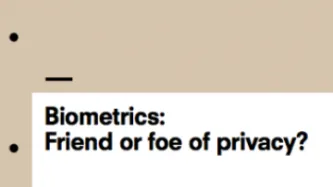Advanced Search
Content Type: News & Analysis
http://www.spiegel.de/international/world/how-the-nsa-spies-on-international-bank-transactions-a-922430.html*Update: The European Parliament has voted to recommend suspension of its Terrorist Finance Tracking Program (TFTP) agreement with the US. The vote in favour of suspension only highlights how the NSA’s reported activities have undermined the agreement. Negotiations should immediately commence to strengthen the privacy and redress provisions, to ensure that governments…
Content Type: News & Analysis
In our ongoing campaign to prevent the sale of surveillance technologies to repressive regimes, Privacy International today has filed a complaint with the South African body responsible for arms controls, asking for an investigation into South Africa-based surveillance company VASTech for the potential illegal export its technology to Libya.
In this case, Western-made surveillance technology was found by the Wall Street Journal when journalists entered the communications…
Content Type: News & Analysis
At the first major discussions on internet governance since the Snowden leaks began in June 2013, Sweden’s Foreign Minister has called for the establishment of principles to define the application of existing human rights obligations to the digital realm.
Noting that the Snowden revelations have given birth to “a new debate about surveillance and privacy”, Foreign Minister Carl Bildt acknowledged that internet governance is being challenged, as some States operate vast surveillance…
Content Type: News & Analysis
The European Parliament Committee that deals with civil liberties and justice issues will have a first vote this week on the revised European data protection framework after months and months of deliberations and negotiations over more than 4,000 amendments. The vote is the first on the framework, which will decide the future of privacy and data protection in Europe. The recent revelations surrounding government surveillance involving some of the Internet's biggest companies have highlighted…
Content Type: News & Analysis
The argument that human rights are a Western concept and that privacy is not a concern for the developing world was rejected last week in a two-day civil society seminar held in Dakar, Senegal.
More than 30 members of West African civil society participated in the seminar on privacy and data protection, organised by Jonction with the support of the Senegalese Commission for Data Protection. Participants denounced the shortcomings of governments and the private sector in…
Content Type: News & Analysis
It was a strangely quiet summer. Beyond the Guardian's reporting of the Edward Snowden leaks and an appearance of William Hague before Parliament, there has been little uproar from the establishment about the extensive surveillance regime operated by the NSA and GCHQ.
No more greater has the silence been felt than from Whitehall, where MPs and government agencies remained tightlipped on the whole affair. This despite the fact that the revelations detailed the UK government's…
Content Type: News & Analysis
As if those in Pakistan did not have enough to worry about when it came to the security of their communications, recent changes to Pakistan’s anti-terror law could see people convicted for terrorism solely on the basis of incriminating text messages, phone calls, or email.
As part of a drive to increase the number of convictions of terror suspects, the government of Pakistan has recently beefed up its anti-terror laws through a presidential ordinance that will permit…
Content Type: News & Analysis
There's a small storm brewing in Switzerland around the private surveillance industry, as recent revelations have detailed how the country is quietly becoming a centre for companies to export their spy technologies around the world.
After initial media reports last month detailed how companies like Gamma International, sellers of the notorious malware suite FinFisher, are seeking licenses to export their technologies from Switzerland, we wrote to over 70 Swiss lawmakers,…
Content Type: News & Analysis
The Zimbabwean government extended its reach into the private lives of its citizens this week by promulgating a new law establishing a central database of information about all mobile telephone users in the country. The Statutory Instrument 142 of 2013 on Postal and Telecommunications (Subscriber Registration) Regulations 2013, gazetted last Friday, raises new challenges to the already embattled rights to privacy and free expression in Zimbabwe, increasing the potential that the…
Content Type: Report
New technologies may hold great benefits for the developing world, but without strong legal frameworks ensuring that rights are adequately protected, they pose serious threats to populations they are supposed to empower.
This is never more evident than with the rapid and widespread implementation of biometric technology. Whilst concerns and challenges are seen in both developed and developing countries when it comes to biometrics, for the latter they are more acute due the absence of laws or…
Content Type: Press release
Civil society organisations today called upon the members of the Human Rights Council to assess whether national surveillance laws and activities are in line with their international human rights obligations.
The Snowden revelations have confirmed that governments worldwide continue to expand their spying capabilities, at home and abroad. Widespread surveillance is being conducted in violation of individuals’ rights to privacy and free expression, and is seldom regulated by strong legal…
Content Type: News & Analysis
For some time now, Gamma International has been criticised for exporting dangerous surveillance technologies from the UK to repressive regimes. Now, we are learning that the company is taking its show on the road, as recent reports have said that Gamma are now attempting to export its products, including the spyware FinFisher, out of Switzerland.
With sales premises registered at a site just outside the Swiss capital Bern, Gamma has now applied to the Swiss Secretariat for…
Content Type: News & Analysis
This is a excerpt from a piece, written by Privacy International partners Andrei Soldatov and Irina Borogan, which appears in the Fall issue of the World Policy Journal:
In March 2013, the Bureau of Diplomatic Security at the U.S. State Department issued a warning for Americans wanting to come to the Winter Olympics in Sochi, Russia next February: Beware of SORM. The System of Operative-Investigative Measures, or SORM, is Russia’s national system of lawful interception of all…
Content Type: News & Analysis
This week in London, the world's largest arms fair DSEI rolled into town, bringing together some of the world’s most sophisticated killing and torture equipment with some of the world’s worst human rights abusers. On sale this year was also some of the UK’s premier lawful interception and surveillance technology.
Considering the forum in which these technologies are being sold, and the caliber of customers looking to buy it, you would think that the sale of such…
Content Type: News & Analysis
It was only a year ago when the UK Home Office repeatedly made statements about how their capability to collect intelligence was degrading, and how new laws such as the Communications Data Bill were necessary to protect citizens.
In hindsight, given the revelations about the UK domestic mass surveillance programs, these once desperate cries for more crime- and terrorism-fighting tools now look like nothing more than attempts to illegitimately spy more on all citizens. Quotes from those debates…
Content Type: News & Analysis
Through our Big Brother Incorporated project, Privacy International over the past two years has been campaigning against the export of surveillance technologies by Western companies to repressive regimes. One of the seminal moments of this campaign was in 2011, when we partnered with Wikileaks to release the SpyFiles, which catalogued hundreds of brochures, presentations, marketing videos, and technical specifications exposing the inner workings of the international trade in…
Content Type: Press release
Transparency reports have traditionally played a critical role in informing the public on the lawful access requests made by governments to companies like Facebook. These reports have provided a useful accountability mechanism for users to know what governments are asking for and how often. Transparency reports also inform users as to what intermediaries are doing to protect their privacy when it comes to sharing data with governments. Given Facebook's ever-growing presence in the lives of…
Content Type: News & Analysis
The development agenda is heralding a new cure-all for humanitarian and development challenges – data.
In the latest incarnation of the development world’s dominant paradigm, ICTs for Development, data is being embraced, analysed and monitored by companies, humanitarian organisations, aid donors and governments alike. Yet despite the promises of data evangelists that big and open data can revolutionise innovation, education, health care and infrastructure, the potential risks of…
Content Type: News & Analysis
For some time now there has been a need to update understandings of existing human rights law to reflect modern surveillance technologies and techniques. Nothing could demonstrate the urgency of this situation more than the recent revelations confirming the mass surveillance of innocent individuals around the world.
To move toward that goal, we’re pleased to announce today the formal launch of the International Principles on the Application of Human Rights to…
Content Type: News & Analysis
Barclays recently announced that they were looking to sell "aggregated" customer data to third parties. While the news sparked concern among the UK public, the practice, unfortunately, is becoming common among many industries.
A few months ago, it was revealed that Everything Everywhere appeared to be selling location and de-identified data to Ipsos MORI, who in turn made it available to third parties, which included offering it to the Police. Despite another…
Content Type: News & Analysis
Following reports that the Mexican prosecution authority appears to be not only using FinFisher, but also to be involved in a corruption scandal surrounding the purchase of this intrusive surveillance technology, the Mexican Permanent Commission (composed of members of the Mexican Senate and Congress) has urged Mexico's Federal Institute for Access to Public Information and Data Protection (IFAI) to investigate the use of spyware in Mexico.
The corruption scandal, which entails the…
Content Type: News & Analysis
Since mid-2012 the Hebrew University International Human Rights Clinic has been collaborating with Privacy International to produce research about the state of privacy laws and protections in Israel and worldwide.
Last week marked the launch of a long-anticipated pilot of a controversial Israeli biometric database, a project that has been the target of civil society protest and the subject of a challenge in the Israeli Supreme Court.
While there is no shortage of institutions maintaining…
Content Type: Long Read
Britain's spy agency, GCHQ, is secretly conducting mass surveillance by tapping fibre optic cables, giving it access to huge amounts of data on both innocent citizens and targeted suspects, according to a report in the Guardian.
Mass, indiscriminate surveillance of this kind goes against an individual's fundamental human right to privacy. The scope and scale of this program, which monitors the entire British public and much of the world, is neither necessary nor proportionate and thus,…
Content Type: News & Analysis
It is a long-standing privacy principle that an individual should have access to their personal information. This is particularly necessary in healthcare - after all there is nothing more personal than health information.
As the mass digitisation of health records increases, many issues arise about this access right. The right of 'subject access' comes with its own complexities. One challenge is that individuals can sometimes be compelled to conduct subject access requests in…
Content Type: News & Analysis
The following excerpt is from a posting in the Guardian's Comment is Free by Carly Nyst, Privacy International's Head of International Advocacy.
"In order to challenge a secret surveillance system, and to demand the government explains why it is spying on British citizens, one must apply to a secret tribunal that does not make public its proceedings or the reasons for its decision. It may seem like an Orwellian fantasy, but this is the stark reality of the British legal system.
It's called…
Content Type: News & Analysis
All across the U.S. on 4 July, thousands of Americans gathered at Restore the Fourth rallies, in support of restoring the Fourth Amendment of the U.S. Constitution and to protest the recently-disclosed information regarding NSA spying on American citizens. Demonstrations took place in over 100 cities, calling on the U.S. government to respect the privacy rights of citizens in America and individuals around the world.
With all this talk of constitutional …
Content Type: News & Analysis
Privacy International this week submitted stakeholder reports to the United Nations Human Rights Council1 about the human rights records of China, Senegal and Mexico. The reports, prepared in preparation with our partners in the respective countries, analyse the extent to which the right to privacy is respected and protected, and detail instances of privacy violations.
The stakeholder reports will inform the questions asked by members of the Human Rights Council when China, Senegal and…
Content Type: News & Analysis
In the wake of recent revelations about the NSA’s extensive surveillance powers over foreigners and American citizens, an ever-fuller picture of mass surveillance is being drawn in the US, the UK, and across the Western world. But what about clandestine surveillance practices in African states? How do they approximate or differ from those we’ve heard so much about in the last few weeks? A recent case from West Africa can help us begin to answer these questions.
In March,…
Content Type: Press release
A complaint filed with the Organisation for Economic Cooperation and Development (OECD) against Gamma International, a UK-based company accused of selling surveillance spyware for governments, will proceed and has been accepted for consideration, the UK National Contact Point (NCP) for the OECD announced.
The decision by the NCP is instrumental in the ongoing campaign to hold surveillance companies accountable for their products and the potential enabling of governments to commit human rights…
Content Type: News & Analysis
In an encouraging first response to our complaint against surveillance company Gamma International (Gamma), the UK National Contact Point (NCP) of the Organisation for Economic Cooperation and Development (OECD) announced that it will further investigate our claim against Gamma, as the evidence submitted appears to substantiate our allegations.
In February 2013, Privacy International, together with the European Center for Constitutional and Human Rights, Bahrain Watch, the Bahrain Center…

























